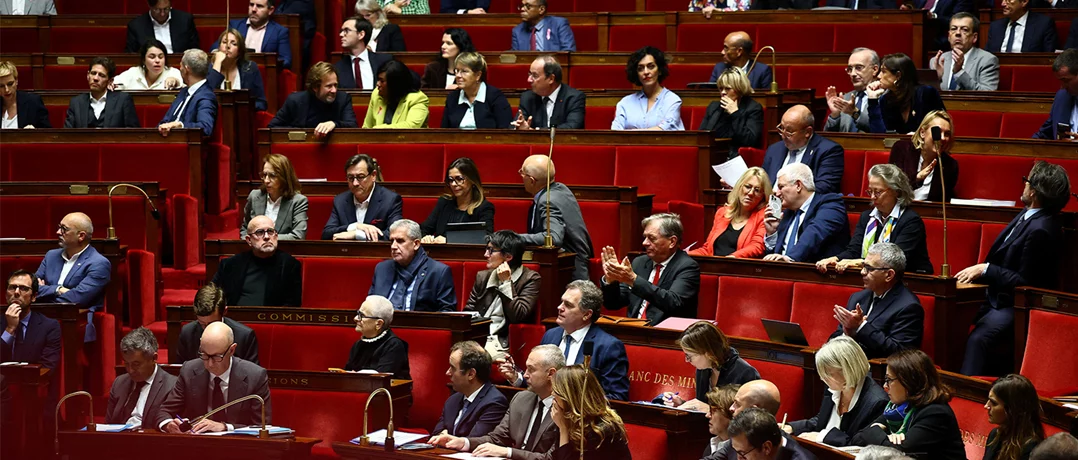The National Rally achieves a symbolic triumph as France debates repealing the 1968 migration deal with Algeria.
French parliament calls for repealing 1968 Franco-Algerian accord
French parliament calls for repealing 1968 Franco-Algerian accord


Right-wing influence and backing in France seem to show signs of ongoing persistence, shaping the country’s political landscape.
On October 30, 2025, France’s National Assembly (the country’s legislative body) adopted a motion put forward by the far-right National Rally (RN) aimed at repealing the 1968 Franco-Algerian accord. The passing of the text marked the first time in history that the French parliament approves a motion proposed by Marin Le Pen’s party. Although the decision lacks any legal effect, it nevertheless signals a potential risk for the aforementioned agreement and represents a vital symbolic victory for Le Pen and her far-right party.
The 1968 agreement’s ambiguous sustainability
On December 27, 1968, almost 6 years following Algerian independence, French and Algerian governments signed a critical accord, known as the “Agreement concerning the movement, employment and residence of Algerian nationals and their families in France.” According to its provisions, the agreement was designed to regulate post-independence migration between the two countries, making it easier for Algerians to settle in France. It established an annual, adjustable quota of 35,000 workers, each required to secure employment within 9 months to be eligible for a 5-year residence permit. Salaried or self-employed individuals, as well as Algerians living in France with adequate financial means, were granted a 5-year “Algerian residence certificate” (CRA), which could be shortened in cases of unemployment. Algerians who had already resided in France for 3 years were eligible for a 10-year CRA. It, thus, preserved the freedom of movement of Algerians “going to France without the intention of carrying out a salaried professional activity.”
The National Assembly’s vote, however, has risked the sustainability of the agreement. It could create the required momentum and atmosphere to advance the motion into an actual effective government policy, thus putting symbolic texts into meaningful action. Paris has already been seeking to revise the Franco-Algerian accord earlier this year. In February 2025, then French Prime Minister François Bayrou announced that his government will be “re-examining” a 1968 migration pact, while Algeria’s Ministry of Foreign Affairs responded firmly, warning that it would not accept being “addressed with ultimatums, warnings or threats.” The head of Macron’s party, Renaissance, Gabriel Attal, has also previously called for repealing the agreement, amid increasing tensions between France and Algeria. Therefore, the recent decision could provide the government with the necessary incentives and backing to pursue this controversial policy.
A significant symbolic victory for the far-right
Marine Le Pen’s National Rally has gained considerable influence and exposure with the National Assembly’s decision. Following years of exclusion and isolation, under the so-called “cordon sanitaire” (a self-imposed unwritten rule preventing them from working with the far right), the far-right party has managed to secure a notable symbolic victory ahead of the upcoming municipal elections in March 2026.
The motion passed by an extremely narrow margin, by only one vote (185 against 186). The ones that stood opposed to the proposed motion represent left-wing parties and groups. As for the remaining MPs, a significant portion failed to attend the voting session, including French President Emmanuel Macron’s own party, Renaissance.
After the vote, Le Pen boasted that “this is a historic day for the National Rally,” adding that “for the first time, a text presented by the National Rally … has been adopted.” As she urged Prime Minister Sébastien Lecornu to repeal the accord, the left-wing opposition parties condemned the motion, calling it “racist,” as well as the absence of Macron’s party MPs.


